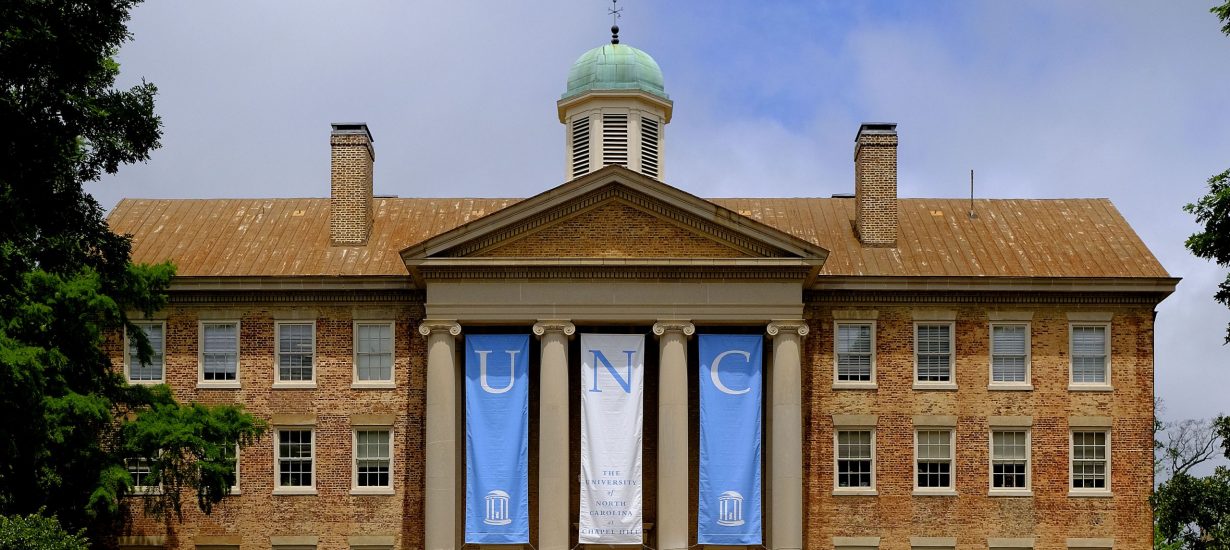University Files Brief in Supreme Court Admissions Case

University officials last month filed a response brief with the U.S. Supreme Court as part of a lawsuit challenging how universities select and educate students, arguing the plaintiff lacks standing in the case.
The court plans to hear oral arguments this fall in the case, which has put Carolina in a national spotlight and may have ramifications for universities nationwide.
In 2014, a private group titled Students for Fair Admissions Inc. sued Carolina alleging racial discrimination under both the 14th Amendment and Title VI of the 1964 Civil Rights Act. SFFA also sued Harvard University, alleging intentional discrimination against Asian applicants.
At issue is a long-standing Supreme Court decision, affirmed as recently as 2016, that allows universities to consider race as one factor in admissions. SFFA is challenging Carolina’s admissions process, which follows the precedent set by the nation’s highest court. Federal, district and appeals courts have also sided with Harvard on this issue.
In their response filed last month, Carolina maintained SFFA lacked standing when it filed its lawsuit, didn’t have a “requisite stake in the outcome” when the suit was filed and wasn’t a “genuine membership organization” when it sued UNC. The University also said UNC follows a holistic process that considers all aspects of an applicant’s background, and “race only rarely plays a meaningful role — explaining a mere 1.2% of admissions decisions. But as the district court found, even this limited consideration of race remains necessary to achieve UNC’s academic mission.”
The Supreme Court planned to hear the cases against Carolina and Harvard jointly, but in a July order, the court said it would hear the cases separately in oral arguments this fall.
Amicus briefs, or filings from people who typically take the position of one side in a case, were due Aug. 1. A decision is expected in both cases in 2023.
According to a University website devoted to the case, UNC doesn’t discriminate in its admissions practice against any applicant or group, or use quotas or formulas. Instead, University officials maintain, applicants are considered on dozens of factors, including academic performance, class rank, essays, experiences and potential contributions to the educational environment on campus.
Other considerations include geography, military background and socioeconomic background. University officials said the admissions office considers race or ethnicity as one factor among many – only if a student chooses to share that information.
“At Carolina, we have long been recognized for making an affordable, high-quality education broadly accessible to the people of North Carolina and beyond,” Chancellor Kevin Guskiewicz said in a statement. “Carolina is passionately public, and we’re proud to be one of the few flagship universities to practice need-blind admissions and provide low-debt, full-need student aid. Our approach to admissions serves the University’s mission and reflects our core values. Every student earns [his or her] place at Carolina.”
Guskiewicz, a member of UNC’s faculty for more than 27 years, said he’s witnessed firsthand the value of the University’s holistic admissions process, adding that bright, talented students from a variety of backgrounds and lived experiences are admitted to Carolina annually.
“Their interactions with others who have a wide range of experiences are vital to their education and to their life success after graduation,” Guskiewicz said. “As business executives who hire our graduates for a global workforce tell us, our students leave Chapel Hill prepared to become the next generation of leaders because they learned from classmates of many different backgrounds and beliefs.”
Administrators said consistent with UNC’s academic mission, the campus pursues educational benefits associated with diversity that are long endorsed by the Supreme Court and include improving learning outcomes, promoting the robust exchange of ideas, fostering innovation and preparing effective leaders.
More information can be found at the University’s admissions lawsuit website.
